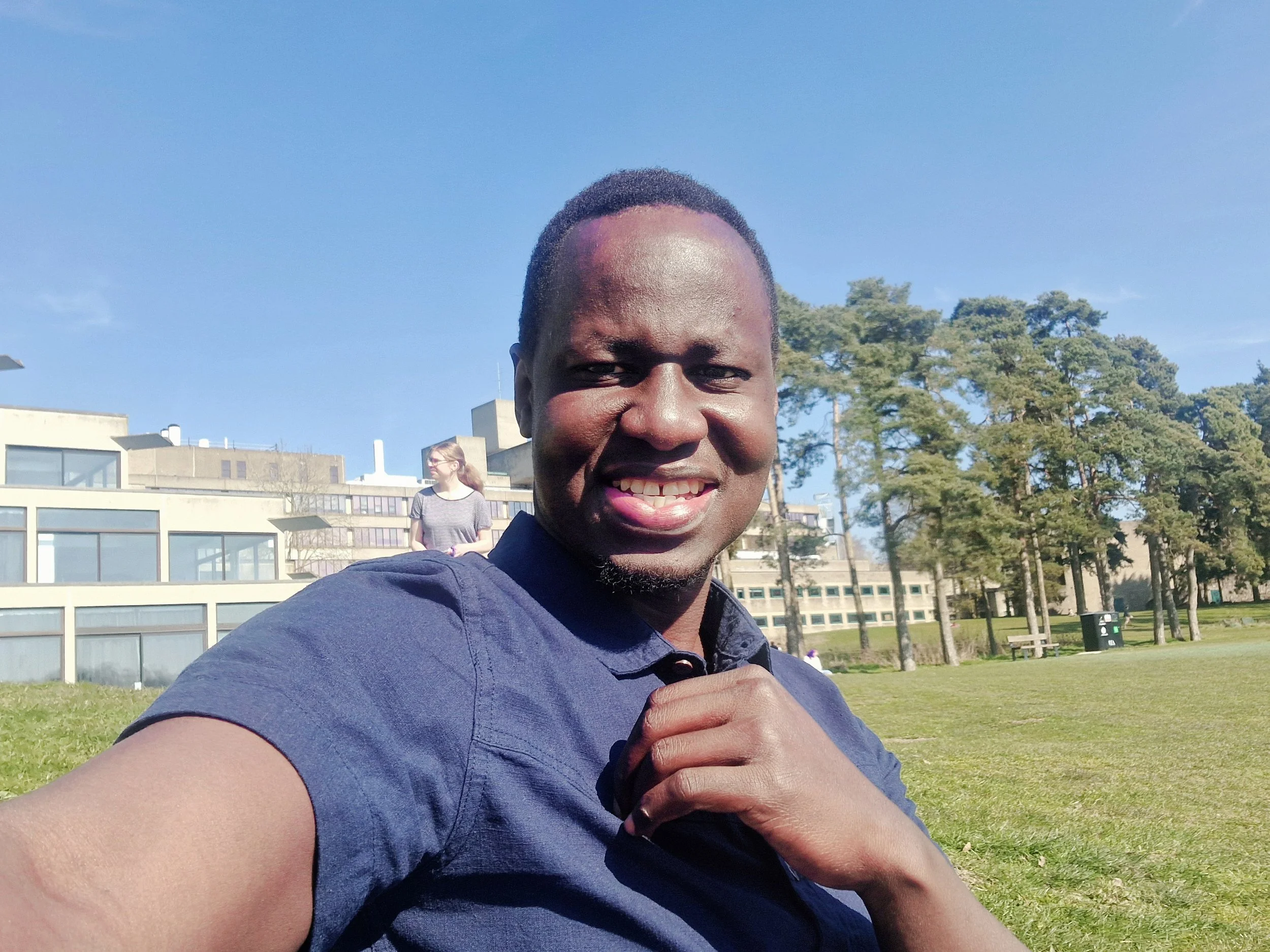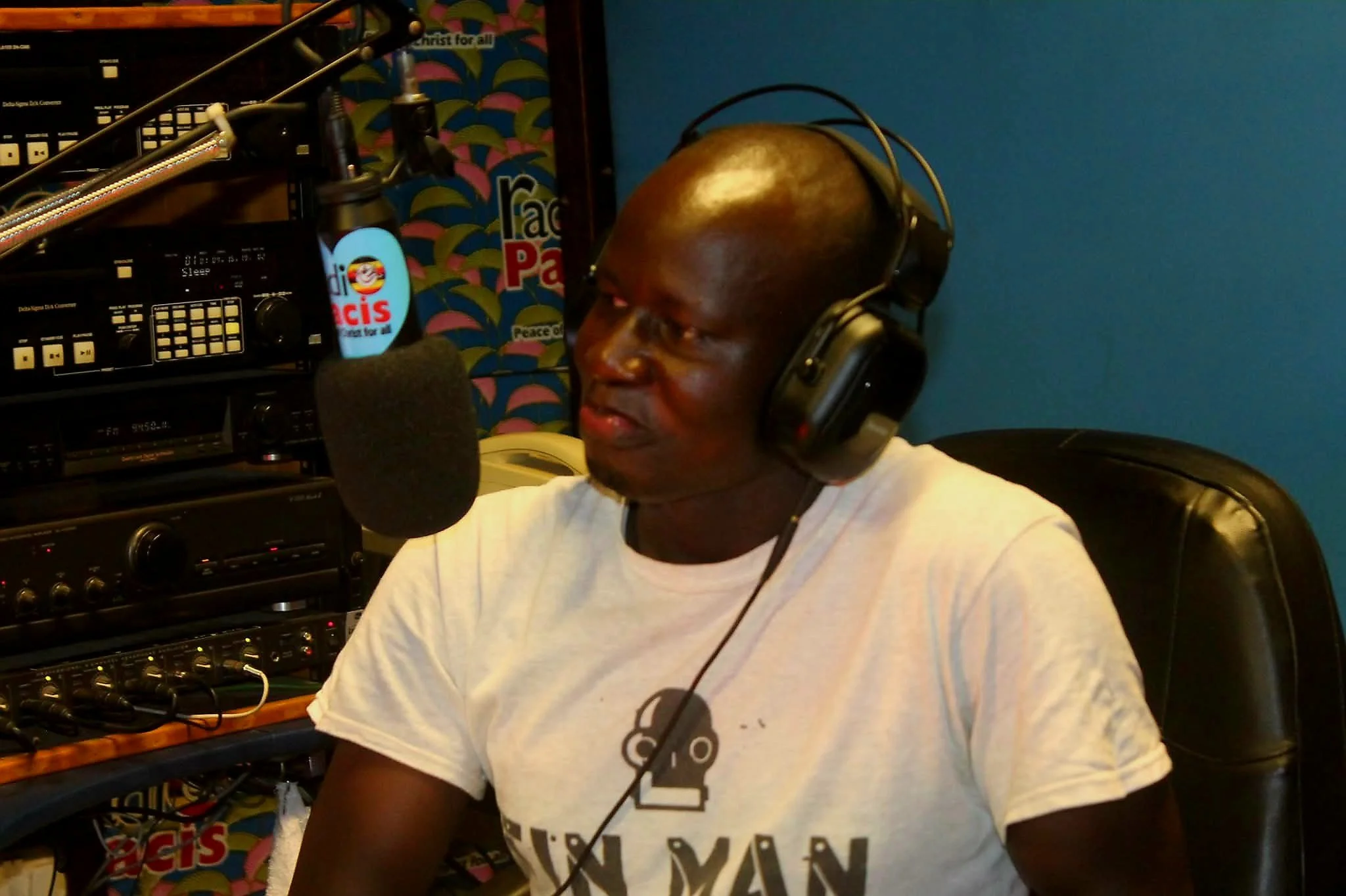Scholarship Story: “We need to learn how to accommodate one another”
Henry Lematia, 34, an award-winning radio journalist from Uganda, is now completing his MA Gender Studies at the University of East Anglia in Norwich. He plans to set up an organisation advocating for gender and social justice back home.
Hi Henry! Tell us a little about yourself.
I grew up in a rural village in Maracha district in northwest Uganda, in a region that had been badly affected by war for a long time. My parents were peasant farmers, and I was the last of seven children. A month after I was born, my father left, leaving my mother to look after all seven of us on her own. It was not easy. She was old and tired, and she had to pay for everything for every single one of us. I watched her struggle to earn money, felling avocados from trees, growing tobacco, working non-stop to provide for us.
I went to school in between bouts of conflict between various armed groups including the Lord's Resistance Army (LRA), Western Nile Bank Front, Uganda National Rescue Front (UNRF), and witnessed the violence these conflicts brought. In 1996, when rebels attacked the local hospital, I remember people running away, being attacked, those deemed 'informers' killed, men abducted, women raped... It was
horrible. Later, when the government was able to intervene, we were taken to Arua, an urban centre, for safety, where school — and life — was more expensive than back home in the village.
I performed well at school and it was by God's grace that a good Samaritan paid my secondary school fees, allowing me to finish. Because I did so well, I was admitted into one of the best schools to do my A-levels, and, again, I was lucky that another good Samaritan offered to pay my fees — on condition that I lay bricks in return. I continued to study, working as a bricklayer in between, and then received a scholarship to go to Mbarara University of Science and Technology. I got a first-class Bachelor's degree in Development Studies, and eventually found work as a journalist.
News editor Henry Lematia at community-based station Radio Pacis in Arua, northwest Uganda.
What did you cover as a journalist?
At the local radio station, I worked my way up to news editor, then completed a post-graduate diploma in Communications and Media Studies. I became bureau chief at an online wire agency, Uganda Radio Network, where I covered refugees and IDPs, government accountability, public policy, community
affairs, and other human rights issues.
Interviewing the refugees, one topic that kept coming up was gender-based violence (GBV). It's a subject I knew well myself. Growing up in northwest Uganda, where GBV was (and still is) prevalent, violence was a way of disciplining children and women and maintaining power. I wanted to discover how I, personally, could contribute to creating a more equitable society, one where everyone is valued and people are not discriminated against, rights are not violated, and marginalised groups, and women and girls, are protected rather than targeted. Power relations need to be challenged, as do systemic inequalities. I applied for a postgraduate scholarship through WTI, and was accepted onto an MA Gender Studies course at the University of East Anglia.
How’s it been living in the UK?
I am very happy to be here. Having only ever travelled across the border of Uganda to market towns in the Democratic Republic of Congo and South Sudan, life in Norwich has been a true mix of interesting and challenging experiences. It's been difficult for me to adapt to not greeting everyone I see; at home, in the village, you say hello and ask how people are. I discovered that I missed home foods very much, and was very excited when I found places to buy products like African chicken, beans, and maize flour (commonly known as posho). And academically, writing essays has been new to me, as in Uganda we normally just sit exams. But I have adapted. The course itself is very interesting, and the most amazing thing is that there are people here from all over the world. Hearing everyone's points of view helps deepen my understanding of gender studies.
My mother, who is in her 70s now, always told me to keep studying, "so you'll be better than me". My elder
brothers and sisters all dropped out, and I dropped out too at one point, when fees became too expensive. She's proud of me, because all the challenges she went through to get me here have been worth it. And I'm proud of her too, because she never stopped believing in me.
What do you plan to do next?
My dream is to return to Uganda to set up a community-based association that advocates for gender equality and social justice, protecting women, girls, children and men who fall victim to violence. We need to learn how to be accommodating of others and think of ourselves as 'humans', not men or women from one nation or another, just humans. Uganda passed the Anti-Homosexuality Act in 2023, which punishes same-sex relations with life in prison and, in severe cases, the death penalty. I have children myself and I want to create a world for them where they can express themselves freely but also understand that everyone, regardless of their race, background or gender deserves dignity,
safety and love. I would love for them to approach gender through a human-centred understanding of identity. This would allow them to focus on equality, compassion and justice for all people, no matter their identity.


